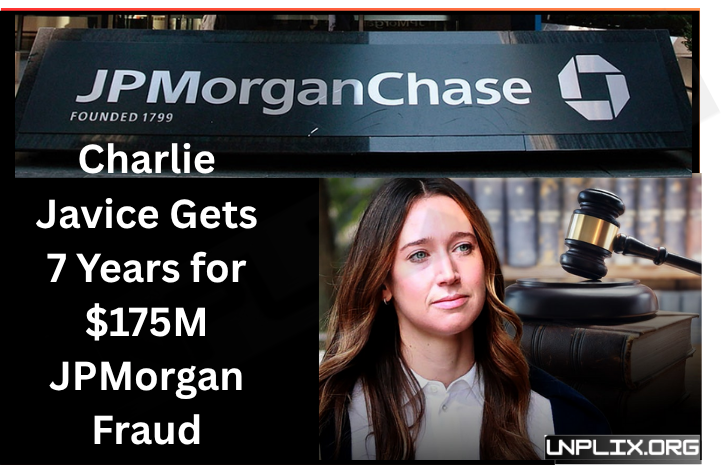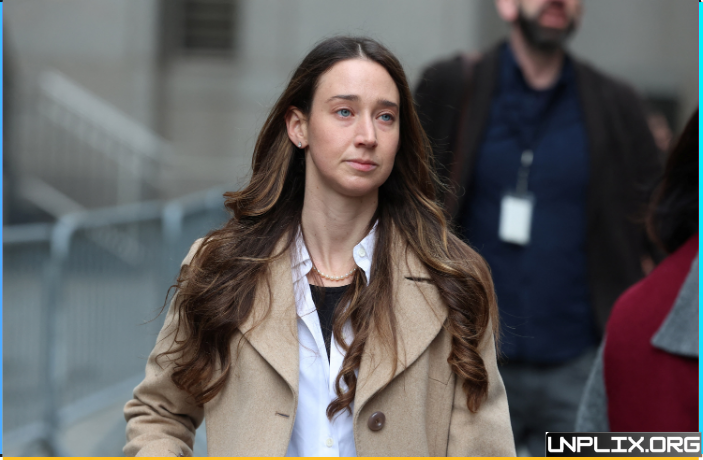The story of Charlie Javice, once praised as a promising fintech startup founder, has taken a dramatic fall. She has been sentenced 7 years in prison after a fraud conviction for defrauding JPMorgan Chase. What began as a celebrated JPMorgan acquisition of her company, Frank (startup), ended in one of the most infamous bank fraud cases of the decade. This case is now being compared to Theranos and other Silicon Valley fraud scandals, shedding light on the darker side of the “fake it till you make it” culture.
The $175 Million Acquisition That Backfired
In 2021 acquisition talks, JPMorgan paid $175 million for Frank, which Javice claimed had 4.25 million users. In reality, Frank had fewer than 300,000 users. To close the deal, Javice and her team allegedly created fake data, synthetic data, and a fabricated customer base to mislead the bank during its acquisition due diligence.
Emails and records revealed deliberate data manipulation and fraudulent statements designed to exaggerate user metrics. This led many to call the JPMorgan deal a “huge mistake acquisition,” exposing serious compliance failures and poor investor oversight.
Olivier Amar and the Team Effort
Prosecutors argued that Javice did not act alone. Olivier Amar, Frank’s chief growth officer, helped generate the inflated data. Their coordinated efforts formed the basis for a conspiracy charge, showing how multiple executives engaged in deceptive practices to boost the company’s startup valuation.
Legal Charges and Fraud Conviction
The U.S. Attorney’s Office charged Javice in 2023 fraud charges with bank fraud, securities fraud, wire fraud, and conspiracy after JPMorgan filed the 2022 JPMorgan lawsuit. Following a fraud trial, a jury verdict in March 2025 conviction found her guilty on all counts.
At her September 2025 sentencing, U.S. District Judge Alvin Hellerstein gave Javice 85 months, or 7 years in prison, along with $288 million restitution and $22 million forfeiture. The sentencing highlighted not just financial damages, but also the massive reputational damage caused to JPMorgan.
Inside the Sentencing Hearing
During the sentencing hearing, Javice’s lawyers filed a pre-sentencing memo arguing she had only shown a “lapse in judgment,” pointing to her social mission of helping students. They blamed JPMorgan’s lack of oversight and suggested the bank was suffering from buyer’s remorse. They requested a leniency request.
But Judge Hellerstein rejected these arguments, stressing that her fraudulent statements, inflated user numbers, and deliberate deception destroyed trust in fintech. Until her prison term began, Javice lived under bail conditions with monitoring (ankle monitor), awaiting the final ruling.
How the Fraud Worked
Javice misled JPMorgan through several deceptive practices:
- Commissioning synthetic data sets to boost Frank’s numbers.
- Creating a fabricated customer base.
- Using fraudulent statements to cover gaps in user metrics.
- Presenting false data during due diligence to exaggerate the company’s size.
- This was a textbook case of startup fraud that spiraled into a high-profile bank fraud case.
Impact on JPMorgan Chase
The scandal hurt JPMorgan financially and reputationally. JPMorgan CEO Jamie Dimon faced criticism for oversight failures. Analysts said the case exposed risk to acquirers in the fintech space and showed how regulatory scrutiny is necessary to avoid such mistakes.
JPMorgan’s legal team argued that the fraud amounted to hundreds of millions in damages. Beyond the money, the case highlighted how even giants like JPMorgan could be misled by exaggerated growth claims.
Comparisons to Theranos and Startup Scandals
The Javice case is often compared to Theranos, another startup scandal that relied on exaggerated growth claims. Both showed how the pressure to scale quickly can push founders into compliance failure and fraud.
Observers point out that while Theranos centered on medical technology, Javice’s fraud revolved around user metrics. Both serve as cautionary tales of the dangers in the startup scandals and Silicon Valley fraud playbook.
Consequences for Fintech
The fallout from this fraud conviction raises major concerns about the fintech startup space:
- Regulatory scrutiny is likely to increase.
- Investors will demand stronger due diligence.
- Founders are reminded that deceptive practices bring harsh penalties.
- The case underscores the long-term consequences for tech founders.
The broader message is clear: the culture of “fake it till you make it” can quickly lead to fraud and prison time.
Appeal Process
Although Javice has begun serving her 7 years in prison, her defense team has already hinted at an appeal process. They hope to challenge parts of the jury verdict, but legal experts say it will be hard to overturn given the overwhelming evidence from the fraud trial.
Frequently Asked Questions (FAQs)
Who is Charlie Javice?
She’s the founder of Frank (startup), a financial aid platform, who was convicted of multiple fraud charges after defrauding JPMorgan Chase.
Why was Charlie Javice sentenced 7 years?
She was found guilty of bank fraud, securities fraud, wire fraud, and conspiracy charge for inflating Frank’s user base during the $175 million acquisition.
What penalties did she face besides prison?
She must pay $288 million restitution, $22 million forfeiture, and serve 85 months.
How did she mislead JPMorgan?
By creating fake data, synthetic data, and a fabricated customer base, she tricked JPMorgan into believing Frank had 4.25 million users instead of 300,000 users.
How does this case compare to Theranos?
Both are startup fraud cases involving exaggerated growth claims. Like Theranos, the Javice scandal ended with a fraud conviction, reputational collapse, and lasting damage to trust in fintech.
Final Thought
The fall of Charlie Javice shows how ambition and deception can destroy careers. Her attempt at defrauding JPMorgan Chase not only led to a fraud conviction and being sentenced 7 years, but also left a permanent mark on the fintech industry. From inflated user numbers to fabricated customer bases, the case is a warning about what happens when founders cross the line. The JPMorgan bank fraud case now stands alongside Theranos as one of the most infamous examples of startup fraud and its devastating consequences.



